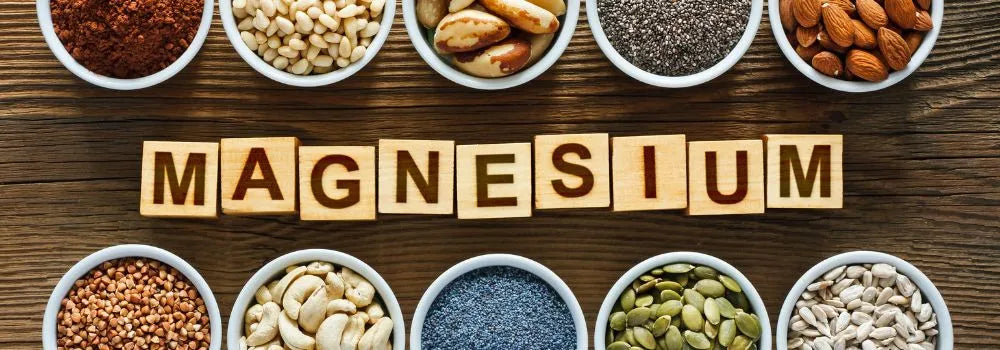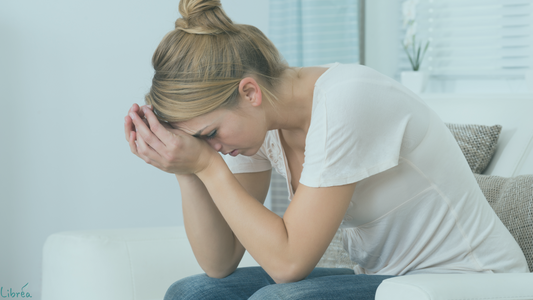
How to relieve PMS symptoms
Share
If you've made it this far, you most likely want to know how to manage PMS. You should know from the start that most people who experience PMS have some period symptoms, but that doesn't mean that all of them have periods with clinical PMS (so it can be cured at home). :)
The bottom line is to know what solutions work for you. And to know them, you must first know what "weapons" you have at your disposal. And that's exactly why I wrote this article, to help you know how to deal more easily with all those PMS symptoms you have.
Be careful with your diet:
You can significantly reduce PMS symptoms. In some cases you can manage or reduce premenstrual symptoms by making dietary changes.
Try these tips:
Eat smaller but more frequent portions
So that you reduce bloating and the feeling of satiety. This will keep your blood sugar stable throughout the day and may lead to relief of those menstrual cycle symptoms you are experiencing.
Consume less salt
You can reduce bloating and fluid retention. If bloating, swollen hands and feet, or tender breasts are among the premenstrual symptoms you 're experiencing, cut back on salt.
Choose to eat foods rich in complex carbohydrates, such as fruits, vegetables (especially green leafy vegetables), whole grains, and healthy fats (omega-3 and omega-6).
"Why is this important?"- you may ask us.
Because large swings in insulin levels are a common cause of intense cravings and bad moods. Complex carbohydrates are important nutrients that slowly enter your bloodstream, helping to curb those cravings and balance your mood.
Eat foods rich in calcium or, if you cannot tolerate dairy products, take a daily calcium supplement.
Avoid caffeine and alcohol as much as you can
If you rely on coffee in the morning to wake you up and a glass of wine in the evening to help you relax, find out that these actions can affect PMS. Both caffeine and alcohol can disrupt your sleep.
As you can see, you don't need to make huge changes in your diet if you try to avoid (as much as you can) processed foods and saturated fats. :)
 Doesn't it make you want to cook yourself a good meal?
Doesn't it make you want to cook yourself a good meal?
"For a healthy life, exercise at least 30 minutes every day" (especially before your period):
Research suggests that aerobic exercise can help relieve symptoms of PMS (such as fatigue and depression). Don't think about complicated exercises. Anything that gets your heart rate up is considered aerobic exercise.
Exercise helps improve your mood by stimulating important brain chemicals called endorphins. Endorphins can also help reduce the discomfort you feel (aka pre-period pain).
Here are some ideas of physical activities you can do:
- Walking briskly
- Jogging
- Cycling
- Swimming (by the way, you can swim in Libréa period panties)
- Yoga
And if we are still on the subject of "sport", we also want to offer you 3 tips:
- Don't overdo it or choose exercises that exhaust you.
- Make exercise a regular activity, not just for when your PMS symptoms are at their worst. (30 minutes a day is ideal).
- Don't forget to drink plenty of water too!
 Continue your sports activities during your period with our menstrual panties.
Continue your sports activities during your period with our menstrual panties.
Reduce stress
Studies show that feeling stressed in the weeks leading up to your period can increase your risk of experiencing severe PMS symptoms.
To reduce stress, try these ideas:
-
Get enough sleep
If you normally need 7 hours of sleep every night, try to sleep 8 hours now. When you're tired it's harder to focus and you can become agitated more easily.
-
Do muscle relaxation exercises or deep breathing exercises
To reduce your headaches, anxiety and insomnia. Try yoga or get a massage to relax.
Of course, the symptoms may not go away completely, but stress minimization techniques may make the symptoms more manageable.
Magnesium can be very helpful in combating PMS symptoms:
Did you know that magnesium has a lot of benefits for menstrual health?
Here they are:
-
Magnesium can reduce stress
Magnesium calms the nervous system by normalizing the actions of various hormones (mainly progesterone).
The outcome? Less anxiety, fewer premenstrual hot flashes and a better ability to cope with stress .
-
Magnesium helps prevent menstrual cramps
Taken daily, magnesium can prevent muscle cramps by relaxing the muscles of the uterus and reducing the prostaglandins that cause menstrual cramps.
-
Magnesium promotes the healthy elimination of estrogens
This is done by supporting the COMT (catechol-o-methyltransferase) enzyme in the liver, with magnesium promoting the healthy excretion of estrogens.
Yes, we know, magnesium is great, but how many of us are taking it? One way to find out if you are deficient in magnesium is to try taking a supplement and see how you feel. Unless you have chronic kidney disease, taking magnesium is safe.
However, we recommend that you talk to your family before taking any food supplement.
And finally, a piece of advice as important as the ones so far...
 Eating well during your period will put you at ease
Eating well during your period will put you at ease
Talk openly with your partner and be kind to yourself:
Open communication and understanding can help minimize the difficulties that premenstrual syndrome (PMS) entails. Symptoms such as anxiety and irritability are the most intense and widespread signs of PMS, and these feelings can cause you to isolate yourself from your family and partner.
But studies show that your life partner (regardless of gender) can have a significant positive influence on you, and the relationship effects of PMS can be managed.
Here's what you could implement:
- Convey to your partner that mood swings are a result of PMS. And that they will pass. Ask your partner for emotional and physical support when you need it.
- And a piece of advice for your partner: show patience and acceptance during this period. :) Ask your partner to support you more practically (like doing housework, taking care of the kids, etc.)
- Help your partner understand what you are going through, the experiences you have, the thoughts, sensations and emotions when you have PMS. You can use articles on the internet for a more scientific explanation.
- A partner's response to PMS has a significant impact on how a person experiences premenstrual change. But just as you teach your partner to accept and understand everything you're going through, so do you.
And for that, we have prepared some tips for you:
- Remember that you are doing your best. And that's enough. Some factors are within your control, such as diet, stress management, and adequate rest, and others are not.
- Accept that there will be ups and downs, and remember on bad days that better days are sure to come.
- Don't take seriously all the thoughts you have a week or 2 before your period.
- Don't judge how you manage PMS. Maybe you won't do sports every day, or maybe you'll eat more sweets than usual on another. And we want to tell you that it's okay. However we do this.
Of course, it's an understandable reaction when the energy is low and you don't feel yourself. But loved ones who support you are priceless. Let them comfort you with a kind word, go for a walk and spend quality time with them.
#Libréagurl






